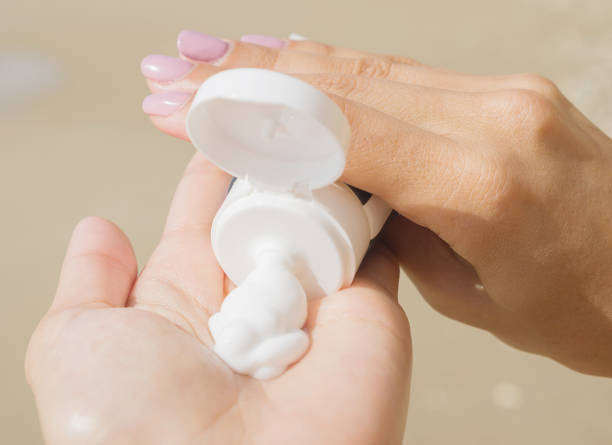The global mineral sunscreen market is witnessing significant growth, with projections indicating the market will reach a valuation of USD 2,441.0 million by 2033. This growth reflects a steady compound annual growth rate (CAGR) of 5.2% over the forecast period, starting from USD 1,470.3 million in 2023.
What is Mineral Sunscreen?
Mineral sunscreens, also known as physical sunscreens, use natural minerals such as zinc oxide and titanium dioxide to shield the skin from harmful ultraviolet (UV) rays. These ingredients act as a physical barrier, sitting on the skin’s surface and reflecting UV rays, making them a popular choice for consumers seeking natural and eco-friendly sun protection solutions.
Key Drivers of Market Growth
- Growing Awareness of Skin Health
Increasing consumer awareness regarding the harmful effects of UV radiation and the rising incidence of skin-related issues such as sunburns, premature aging, and skin cancer have fueled the demand for mineral sunscreens. Consumers are more conscious about the ingredients they apply to their skin, opting for products that offer safer, more natural protection. - Rising Demand for Natural and Organic Products
As health and wellness trends evolve, there is growing interest in natural and organic skincare products. Mineral sunscreens, being free from harmful chemicals like oxybenzone and avobenzone (often found in chemical sunscreens), align with the preferences of environmentally-conscious consumers seeking non-toxic sun protection alternatives. - Environmental Sustainability
Many consumers are opting for mineral sunscreens due to their reef-safe Unlike chemical sunscreens, which can harm marine ecosystems, mineral sunscreens are considered safe for coral reefs. As governments and environmental organizations advocate for safer sunscreen options, the demand for mineral sunscreens is expected to rise further. - Dermatologist-Recommended for Sensitive Skin
Dermatologists frequently recommend mineral sunscreens for individuals with sensitive skin, as they are less likely to cause irritation compared to chemical sunscreens. The hypoallergenic and non-comedogenic properties of mineral sunscreens make them an attractive option for people with skin sensitivities and those prone to acne.
Emerging Trends in the Mineral Sunscreen Market
- Innovation in Product Formulation
Manufacturers are continuously innovating to create mineral sunscreens that offer improved texture, water resistance, and transparency on the skin. One of the main criticisms of traditional mineral sunscreens has been the white cast they leave on the skin. However, advancements in product formulation are helping to mitigate this issue, making mineral sunscreens more appealing to a broader audience. - Broad Spectrum Protection
Consumers are increasingly looking for sunscreens that offer broad-spectrum protection, shielding the skin from both UVA and UVB Mineral sunscreens, especially those containing zinc oxide, provide broad-spectrum coverage, which further boosts their popularity. - Growing Preference for Vegan and Cruelty-Free Products
The market is witnessing a shift towards vegan and cruelty-free products, with a significant number of brands launching mineral sunscreens that cater to this growing demand. As ethical consumerism becomes more mainstream, the demand for cruelty-free mineral sunscreens is expected to increase.
See Full Report: https://www.futuremarketinsights.com/reports/mineral-sunscreen-market
Challenges in the Mineral Sunscreen Market
Despite the promising growth, the mineral sunscreen market faces certain challenges, including:
- Higher Price Points
Mineral sunscreens tend to be more expensive than their chemical counterparts, which may deter budget-conscious consumers from switching to these products. Price sensitivity in certain regions can impact overall market growth. - Consumer Misconceptions
While mineral sunscreens offer numerous benefits, some consumers still hold misconceptions about their effectiveness or application. Educating consumers about the superior safety profile and environmental benefits of mineral sunscreens will be crucial in driving adoption. - Texture and Application Issues
Mineral sunscreens are often associated with a thicker texture and the potential for leaving a white residue on the skin. Although newer formulations are addressing this concern, some consumers may still prefer the lighter texture of chemical sunscreens.
Regional Insights
- North America and Europe dominate the global mineral sunscreen market, driven by high consumer awareness regarding skin health, increasing disposable incomes, and stringent regulations against harmful chemical ingredients.
- Asia-Pacific is emerging as a promising market due to growing health consciousness, rising urbanization, and increasing interest in premium skincare products. The region is expected to witness significant growth during the forecast period.
Market Segmentation
By Skin Type:
- Dry
- Oily
- Sensitive
Sun Protection Factor:
- Up to 29 SPF
- 30 SPF to 49 SPF
- 50 SPF to 69 SPF
- 70 SPF and more
By Consumer Orientation:
- Male
- Female
- Unisex
By Nature:
- Natural
- Organic
- Synthetic
Price Range:
- Economy/Mid-Range
- Premium
Age:
- Adult
- Children
Sales Channel:
- Direct
- Indirect
- Supermarkets/Hypermarkets
- Convenience Stores
- Independent Small Stores
- Discounted Stores
- Online Sales Channel
- Others
By Region:
- North America
- Latin America
- Europe
- South Asia
- East Asia
- Oceania
About Future Market Insights (FMI)
Future Market Insights, Inc. (ESOMAR certified, recipient of the Stevie Award, and a member of the Greater New York Chamber of Commerce) offers profound insights into the driving factors that are boosting demand in the market. FMI stands as the leading global provider of market intelligence, advisory services, consulting, and events for the Packaging, Food and Beverage, Consumer Technology, Healthcare, Industrial, and Chemicals markets. With a vast team of over 400 analysts worldwide, FMI provides global, regional, and local expertise on diverse domains and industry trends across more than 110 countries.
Contact FMI:
Future Market Insights Inc.
Christiana Corporate, 200 Continental Drive,
Suite 401, Newark, Delaware – 19713, USA
T: +1-347-918-3531
For Sales Enquiries: sales@futuremarketinsights.com
Website: https://www.futuremarketinsights.com
LinkedIn| Twitter| Blogs | YouTube
